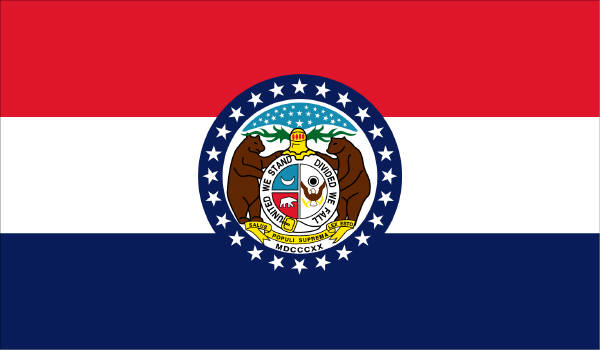Missouri Amendment 1, Annual Legislative Sessions Measure (1970)
| Missouri Amendment 1 | |
|---|---|
| Election date |
|
| Topic Open meetings and public information and State legislative processes and sessions |
|
| Status |
|
| Type Legislatively referred constitutional amendment |
Origin |
Missouri Amendment 1 was on the ballot as a legislatively referred constitutional amendment in Missouri on November 3, 1970. It was approved.
A "yes" vote supported amending the Missouri State Constitution to establish annual legislative sessions, ban secret final votes, allow reconvening to consider vetoed bills, and permit hiring more legislative employees. |
A "no" vote opposed amending the Missouri State Constitution to establish annual legislative sessions, ban secret final votes, allow reconvening to consider vetoed bills, and permit hiring more legislative employees. |
Election results
|
Missouri Amendment 1 |
||||
|---|---|---|---|---|
| Result | Votes | Percentage | ||
| 511,296 | 50.43% | |||
| No | 502,589 | 49.57% | ||
-
- Results are officially certified.
- Source
Text of measure
Ballot title
The ballot title for Amendment 1 was as follows:
| “ | Amendment No. 1- (Submitted by the 75th General Assembly) Provides annual legislative sessions, prohibits secret final vote on bills, resolutions, confirmations; reconvenes legislature to consider bills returned by governor; may provide more legislative employees. | ” |
Path to the ballot
- See also: Amending the Missouri Constitution
A simple majority vote is required during one legislative session for the Missouri General Assembly to place a constitutional amendment on the ballot. That amounts to a minimum of 82 votes in the Missouri House of Representatives and 18 votes in the Missouri State Senate, assuming no vacancies. Amendments do not require the governor's signature to be referred to the ballot.
See also
External links
Footnotes
State of Missouri Jefferson City (capital) | |
|---|---|
| Elections |
What's on my ballot? | Elections in 2026 | How to vote | How to run for office | Ballot measures |
| Government |
Who represents me? | U.S. President | U.S. Congress | Federal courts | State executives | State legislature | State and local courts | Counties | Cities | School districts | Public policy |



